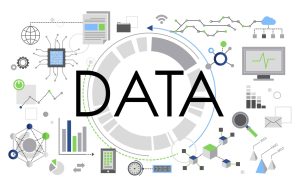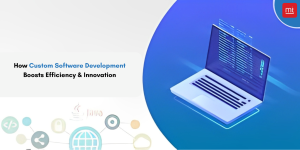Demystifying the Data Maze: Your Guide to a Rewarding Career in Data Science

In the era of information overload, the ability to navigate the vast landscape of data has become a critical skill. As industries harness the power of data to drive decision-making, the demand for skilled data scientists is soaring. In this article, we will demystify the complexities of data science, providing a comprehensive guide to a rewarding career in this dynamic field. We’ll delve into the secrets of data, the essential skills acquired in postgraduate (PG) programs, and the ethical considerations that underscore the potential of data science to address global challenges.
Unveiling the Secrets of Data: A Precious Resource
Data, often referred to as the “new oil,” is a vast and valuable resource that fuels the engines of modern industries. From business analytics to healthcare advancements, the applications of data are diverse and impactful. Understanding the secrets of data involves recognizing its potential, its various forms, and the insights it can provide when analysed effectively.
Data comes in structured and unstructured formats, ranging from traditional databases to social media posts and sensor readings. Uncovering its secrets requires proficiency in data collection, cleaning, and analysis. This is where the role of a data scientist becomes pivotal—to transform raw data into actionable insights that drive informed decision-making.
Diving into Core Skills: Programming, Statistics, and Machine Learning
Embarking on a career in data science often involves pursuing a postgraduate (PG) program that equips individuals with the core skills necessary for success. Let’s explore the fundamental skills that aspiring data scientists conquer in their PG programs:
Programming Proficiency: The Foundation of Data Science
At the heart of data science lies programming, and proficiency in languages like Python and R is essential. PG programs provide hands-on experience in coding, data manipulation, and building algorithms. Whether you’re extracting data from databases, cleaning messy datasets, or implementing machine learning models, a strong programming foundation is non-negotiable.
Statistical Analysis: Unraveling Patterns and Trends
Statistics forms the backbone of PG in Data Science, allowing practitioners to uncover patterns, trends, and correlations within datasets. PG programs delve into statistical concepts, teaching students how to apply methods such as hypothesis testing, regression analysis, and probability theory. A solid understanding of statistics empowers data scientists to draw meaningful insights from data and make data-driven decisions.
Machine Learning Mastery: Predictive Analytics and Beyond
Machine learning is the driving force behind predictive analytics and intelligent decision-making. PG programs delve into the intricacies of machine learning algorithms, covering supervised and unsupervised learning, classification, clustering, and more. From predicting customer behavior to optimizing business processes, machine learning skills empower data scientists to extract valuable insights from data.
Ethical Considerations and the Global Impact of Data Science
Beyond the technical skills, ethical considerations play a crucial role in the realm of data science. As data scientists wield the power to influence decision-making and shape outcomes, a responsible approach to handling data is imperative. PG programs emphasize the ethical dimensions of data science, fostering a sense of responsibility among future practitioners.
Moreover, data science holds immense potential to address global challenges. Climate change, poverty, healthcare disparities—these are complex issues that can benefit from the insights derived through data analysis. By harnessing the power of data, data scientists can contribute to innovative solutions, inform policy decisions, and drive positive change on a global scale.
Tailoring Your Data Science Journey: The Role of PG Programs
The journey into data science is unique for each individual, and the choice of a PG program plays a pivotal role in shaping that journey. Tailoring your educational path to align with your interests and career goals is essential. Consider the specific focus and strengths of your chosen PG program, whether it’s a Master’s in Data Science, Business Analytics, or a related field.
Look for programs that offer practical, hands-on experience through real-world projects and industry collaborations. This exposure not only enhances your technical skills but also provides a glimpse into the day-to-day challenges and applications of data science in various domains.
Pro Tip: Include relevant keywords related to data science and PG programs in your title and throughout your post to improve search engine visibility.
Conclusion: Navigating the Data-Driven Future
As we navigate the data-driven future, the role of data scientists becomes increasingly vital. Demystifying the data maze involves recognizing the potential of data, acquiring core skills through PG programs, and embracing the ethical considerations that guide responsible data science practices.
Whether you’re decoding patterns in customer behavior, optimizing supply chains, or contributing to global initiatives addressing climate change, data science opens doors to a world of possibilities. The secrets of data are waiting to be uncovered, and with the right skills and knowledge gained from a tailored PG program, you can embark on a rewarding career at the forefront of the data revolution.






